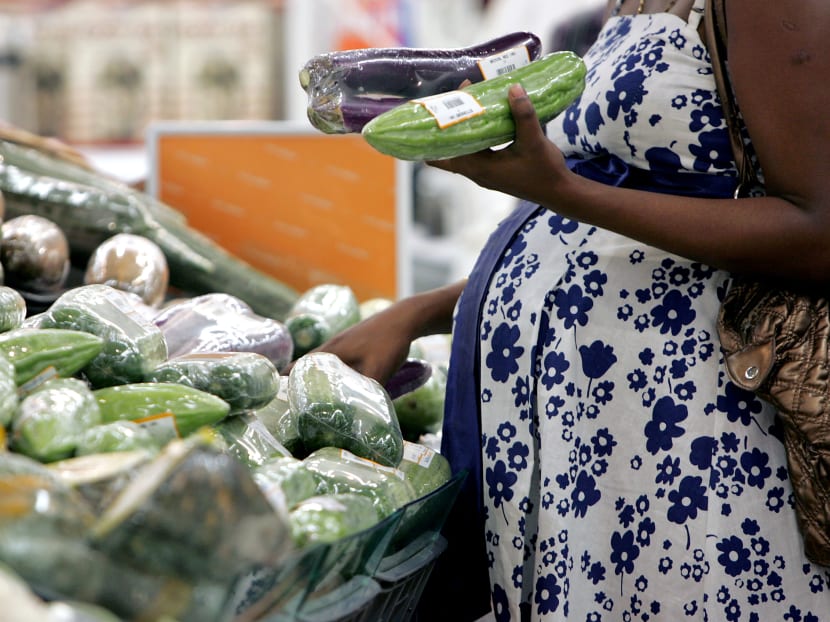El Nino pushes up prices of M’sian fruit, vegetables and Thai coconuts
KUALA LUMPUR — The extended spell of hot weather due to the El Nino weather phenomenon has taken a toll on crop supply, causing the prices of some fruits and vegetables in the region to soar.

Consumers in Singapore can expect to pay more for vegetables from Malaysia and coconuts from Thailand, as the hot weather and lack of rain caused by the El Nino phenomenon continue to hurt crop production in the region and push up prices. TODAY file photo
KUALA LUMPUR — The extended spell of hot weather due to the El Nino weather phenomenon has taken a toll on crop supply, causing the prices of some fruits and vegetables in the region to soar.
Federation of Malaysian Vegetable Farmers’ Association president Tan So Tiok told The Star newspaper that local vegetable output had dropped 20 per cent since last month. The shortage has also affected supply to Singapore by about the same percentage, he said.
“This has affected both leafy vegetables like mustard leaves, watercress and cabbage, and non-leafy vegetables such as long beans, chilli, cucumber, pumpkin and bitter gourd,” he said.
Mr Tan said the situation had improved because of the recent rains but the upcoming Muslim fasting month of Ramadan would create new problems. “Indonesian farm workers will usually head back to their home towns for the fasting month, which leaves us shorthanded,” he said.
“The situation is made worse by the freeze on foreign workers because we can’t take in labourers from other countries to replace those heading home.”
He said countries such as China, Thailand, Vietnam and Indonesia, from where Malaysia imports vegetables, are also cautious about their vegetable supply as they are also facing shortages from the ongoing hot weather.
Cameron Highlands Vegetable Growers Association secretary Chay Ee Mong said output from the highlands has dropped between 30 per cent and 40 per cent since the middle of March, causing vegetables prices to soar by 50 per cent. About 80 per cent of the output is consumed locally while the rest is exported to Singapore.
Over in Thailand, the hot weather has affected Thai coconut production and prices have gone up almost 100 per cent in Singapore as a result.
Coconut importer Kelvin Ngian of Siam Coconut said that the prices are the highest he has seen in 15 years.
“Normally, the price would go up about 1.5 times during this period of shortage. Since January, we have been seeing an increase in coconut prices about one fold,” he said. “That’s the highest we have seen in 15 years.”
Apart from the hot weather, prices have gone up because there has been an increase in demand for coconuts as drinking coconut water has become a health fad.
Malaysia has been enveloped in a sweltering heatwave that saw the temporary closure of schools in March and April and slowed vegetable production, leading to price hikes. Paddy fields, durian and rubber plantations have also been affected by the severe temperatures, and water levels at dams and water treatment plants have been decreasing.
The drought has forced some states, such as Perlis and Johor, to impose water rationing measures.
The Malaysian government has warned that the dry and hot spell could stretch to September, resulting in depleting water reserves, more forest fires and worsening haze.
Science, Technology and Innovation Minister Wilfred Madius Tangau had told TODAY last month that the hot weather would continue for the next five months due to the changing south-west monsoon winds.
The monsoon season is between May and September.
Various industries have expressed concern over the situation while farmers and fish breeders said they have suffered losses due to the heat. AGENCIES









